AWS Solution Architect Certification Training
- 184k Enrolled Learners
- Weekend/Weekday
- Live Class
IoT applications promise to bring immense value into our lives. With newer wireless networks, superior sensors and revolutionary computing capabilities, the Internet of Things could be the next frontier in the race for its share of the wallet. IoT applications are expected to equip billions of everyday objects with connectivity and intelligence. It is already being deployed extensively, the outline of the article is as follows:
Don’t think so? Well, here’s a thought.
Imagine an intelligent device such as a traffic camera. The camera can monitor the streets for traffic congestion, accidents, weather conditions, and communicate this data to a common gateway. This gateway also receives data from other such cameras and relays the information further to a city-wide traffic monitoring system.
Now, take, for instance, the Municipal Corporation decides to repair a certain road. This may cause a traffic congestion on the way to a national highway. This insight is sent to the city-wide traffic monitoring system.
Now, considering this is a smart traffic system, it quickly learns and predicts patterns in traffic, with the use of Machine Learning. The smart system can, thus, analyze the situation, predict its impact and relay the information to other cities that connect to the same highway via their own respective smart systems.
The Traffic Management System can analyze data acquired and derive routes around the project to avoid bottlenecks. The system could also convey live instructions to drivers through smart devices and radio channels. Meanwhile, the city schools and workplaces near the project could also be called to adjust their schedules.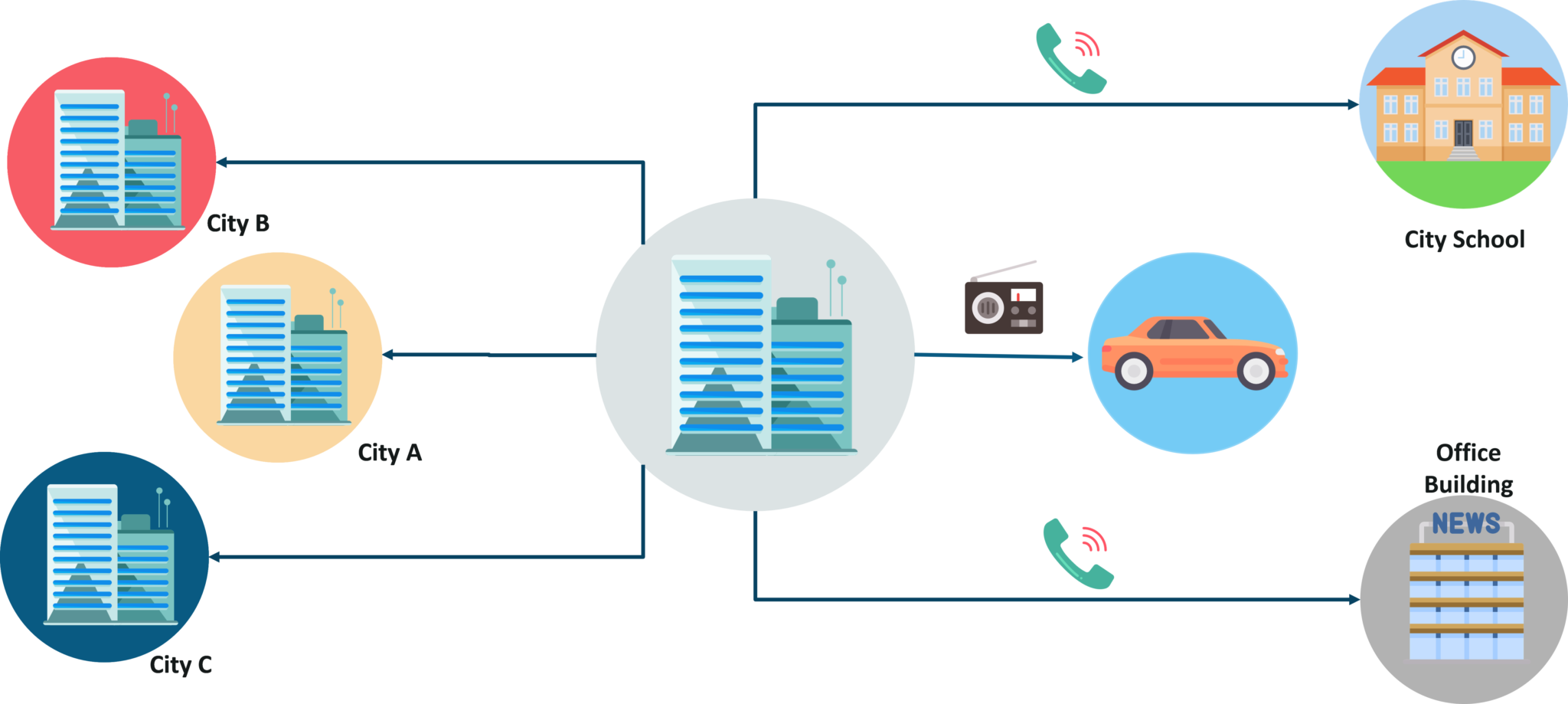
This creates a network of self-dependent systems which leverage real-time control. This is just one example of IoT Applications.
IoT is essentially a platform where embedded devices are connected to the internet, so they can collect and exchange data with each other. It enables devices to interact, collaborate and, learn from each other’s experiences just like humans do.
Wearable technology is a hallmark of IoT applications and probably is one of the earliest industries to have deployed the IoT at its service. We happen to see Fit Bits, heart rate monitors and smartwatches everywhere these days.
One of the lesser-known wearables includes the Guardian glucose monitoring device. The device is developed to aid people suffering from diabetes. It detects glucose levels in the body, using a tiny electrode called glucose sensor placed under the skin and relays the information via Radio Frequency to a monitoring device.
When we talk about IoT Applications, Smart Homes are probably the first thing that we think of. The best example I can think of here is Jarvis, the AI home automation employed by Mark Zuckerberg. There is also Allen Pan’s Home Automation System where functions in the house are actuated by use of a string of musical notes. The following video could give you a better idea.
This video by will take you through the Top 7 IoT projects which are revolutionizing the world.
IoT applications can turn reactive medical-based systems into proactive wellness-based systems.
The resources that current medical research uses, lack critical real-world information. It mostly uses leftover data, controlled environments, and volunteers for medical examination. IoT opens ways to a sea of valuable data through analysis, real-time field data, and testing.
The Internet of Things also improves the current devices in power, precision, and availability. IoT focuses on creating systems rather than just equipment.
Here’s how an IoT-enabled care device works.
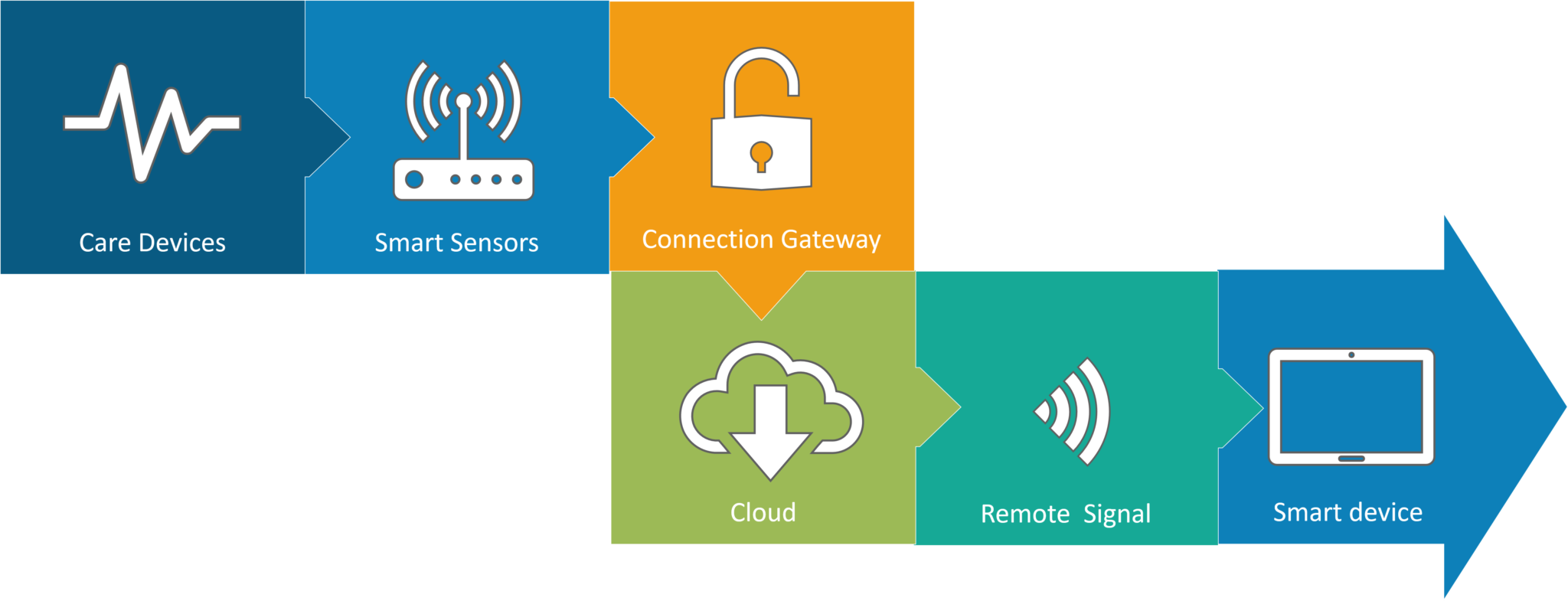
By now I assume, most of you must have heard about the term Smart City. The hypothesis of the optimized traffic system I mentioned earlier, is one of the many aspects that constitute a smart city.
The thing about the smart city concept is that it’s very specific to a city. The problems faced in Mumbai are very different than those in Delhi. The problems in Hong Kong are different from New York. Even global issues, like finite clean drinking water, deteriorating air quality and increasing urban density, occur in different intensities across cities. Hence, they affect each city differently.
The Government and engineers can use IoT to analyze the often-complex factors of town planning specific to each city. The use of IoT applications can aid in areas like water management, waste control, and emergencies.
Let’s take an actual example of a Smart City- Palo Alto.
Palo Alto, San Francisco, is the first city of its kind, that took a whole new approach towards traffic. They realized, most cars on the streets go around and round the same block, in search of parking spots. That’s the main reason for traffic congestion in the city.
Thus, sensors were installed at all the parking spots around the city. These sensors pass the occupancy status of each spot to the cloud. Any number of applications can consume that data. It can guide the drivers through the shortest route to an open spot.
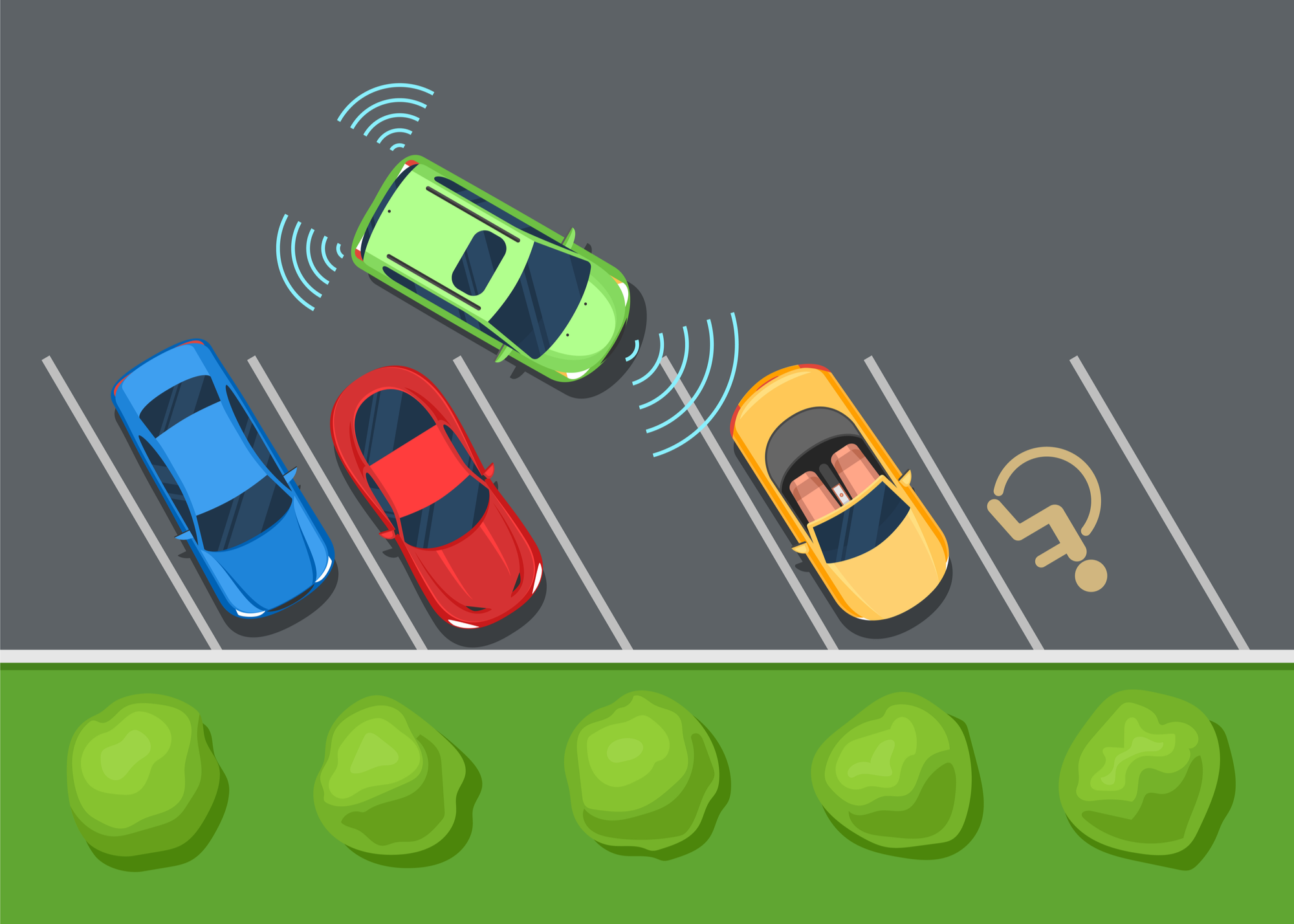
This solution here involves the use of sensor arrays feeding back to a point which, aggregates the data and uses it for various purposes.
Statistics estimate the ever-growing world population to reach nearly 10 billion by the year 2050. To feed such a massive population one needs to marry agriculture to technology and obtain best results. There are numerous possibilities in this field. One of them is the Smart Greenhouse.
A greenhouse farming technique enhances the yield of crops by controlling environmental parameters. However, manual handling results in production loss, energy loss, and labor cost, making the process less effective.
A greenhouse with embedded devices not only makes it easier to be monitored but also, enables us to control the climate inside it. Sensors measure different parameters according to the plant requirement and send it to the cloud. It, then, processes the data and applies a control action. 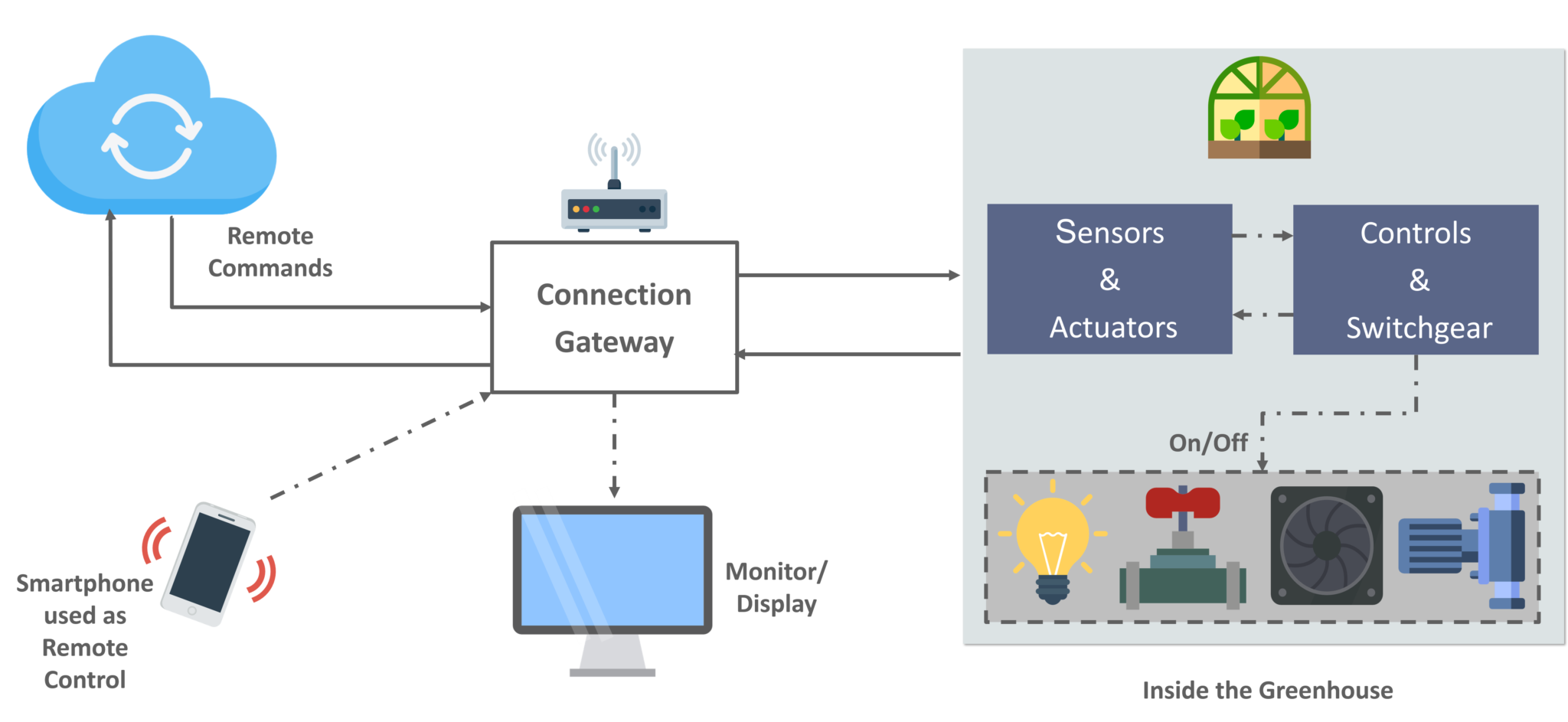
This is one of the fields where both faster developments, as well as the quality of products, are the critical factors for a higher Return on Investment. With IoT Applications, one could even re-engineer products and their packaging to deliver better performance in both cost and customer experience. IoT here can prove to be game changing with solutions for all the following domains in its arsenal.
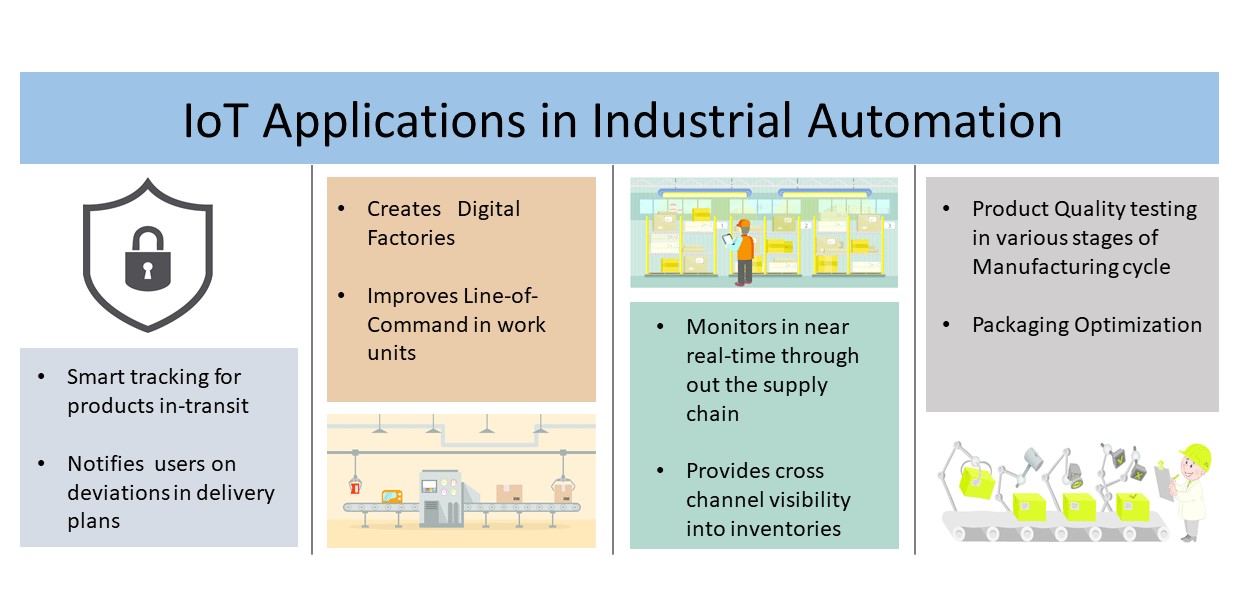 What is the scope of IoT?
What is the scope of IoT?
In just 1-year internet connected devices went from 5 million to billions. Business Insider Intelligence estimates that 24 billion IoT devices would be installed by the year 2020, generating a revenue of over 300 billion.
IoT iterates, improves and keeps building. Its networks don’t arrive pre-assembled, they grow over time. The Internet of Things (IoT) has amalgamated hardware and software to the internet to create a smarter world. It has been growing at a significant pace and offers a multitude of opportunities for government and business. In fact, the number of openings for IoT professionals is at an all-time high.
So, it is the best time to begin exploring the true potential of this technology. Because with IoT, the future is now!
Now that you have gone through our IoT Tutorial blog, you can check out Edureka’s IoT Training Using Azure. As per the Cisco report, IoT will generate $14.4 trillion in value across all industries in the next decade. All of this will lead to better job opportunities. Edureka’s IoT Certification Training aims at covering all these new concepts around the Enterprise IoT Application Development.
Got a question for us? Please mention it in the comments section and we will get back to you.
 Thank you for registering Join Edureka Meetup community for 100+ Free Webinars each month JOIN MEETUP GROUP
Thank you for registering Join Edureka Meetup community for 100+ Free Webinars each month JOIN MEETUP GROUPedureka.co